New Belgium at 30: How the iconic brewery has evolved, from employee ownership to acquisition
Back in 1991, the world of beer looked quite a bit different. A six-pack would have put you back about $5.56, and the chance that that six-pack was from a craft brewery was small; there were just 322 craft breweries across the U.S., which all together produced less than 220,000 barrels of beer that year. New Belgium Brewing, now a well-known name, was just getting off the ground.
Thirty years later, there are now nearly 9,000 craft breweries in the country, which together produce more than 20 million barrels of beer annually, and New Belgium has found itself among the top of that long list. Its Voodoo Ranger IPA is the top IPA brand in the country, and the company says its on track to hit 1 million barrels of beer sold in 2021. New Belgium regularly garners media attention for its impressive business practices: being named to various lists of the best places to work; pulling a bad-tasting-beer PR stunt (Torched Earth beer, anyone?) to bring awareness to climate change and how it threatens even the beer industry; and being mentioned as a key player of not only Colorado’s beer industry but also craft beer at large.
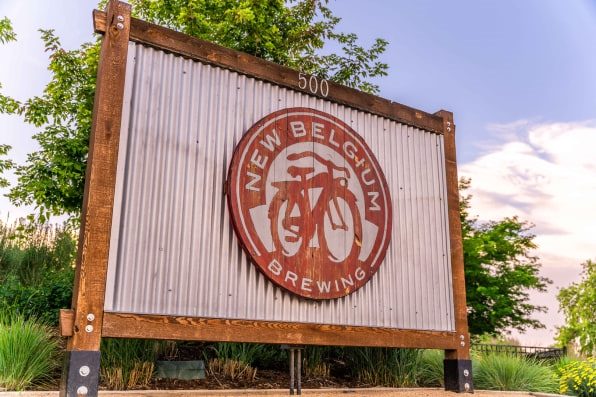
The company’s structure also has taken different forms over those years. In 2000, it set up an ESOP—employee stock ownership plan, meaning the workers own the company. It was the first craft brewery to do so, and it became a shining example of how employee ownership can work and how companies can be more equitable. Though there are more than 6,000 ESOPs in the U.S. today, Loren Rodgers, executive director of the National Center for Employee Ownership, told Fast Company in 2019 that when people ask about the business structure, he points them to New Belgium. “They’ve hardwired employee ownership into what they do,” he said. “They’re pioneering a different corporate model that’s better, more democratic, more just.”
But then New Belgium changed again. In 2019, it was acquired by Lion Little World Beverages, an Australian subsidiary of the Japanese beverage conglomerate Kirin Holdings, ending its employee-ownership era. It was a move that sparked a sense of loss for employee-ownership advocates who questioned if the brand could keep its values as it grew, and if employee ownership is even worth fighting for without system-wide changes to our entire economy. In 2021 there was yet another shift, when Lion announced it would acquire Bell’s Brewery, bringing together Bell’s and New Belgium to make what they say is now America’s largest craft brewery.
In the company’s 30th anniversary year, looking back through the annals of New Belgium’s history offers lessons in how business decisions play out, the impact of employee ownership, and how a company can hold onto its initial mission and ethos through all its growing pains and great growth.
“Somewhat suspicious of the profit motive and commerce”
Kim Jordan admits she was a little naive when she cofounded New Belgium Brewing with her then-husband, Jeff Lebesch, in 1991. She had been a social worker before entering the craft beer world (and he an electrical engineer and then avid home brewer), and if starting a brewery didn’t work out, she says now, she figured they could always go back to their day jobs. “I didn’t really know what I could or could not do,” she says, “and I think that’s a huge benefit, because you’re not working off a ‘well, people always do it this way’ playbook.”
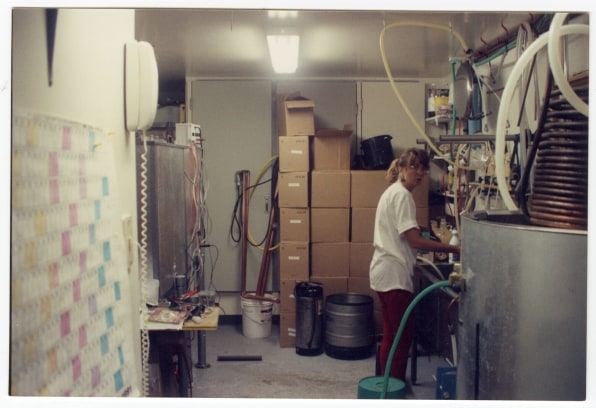
[Photo: courtesy New Belgium]
Her social worker background provided a different kind of perspective to running a business, she adds—along with the fact that she was raised in a “fairly liberal family,” one that was “somewhat suspicious of the profit motive and commerce and all of those things.” Before they made any beer, the founders made a set of four key principles to guide every company decision: create world-class beers; promote the culture of beer; be responsible environmental stewards; and have fun. Those have evolved just slightly but stayed consistent with their intent, now reading as: make world-class beers for everyone; do right by people; inspire social and environmental change; and have “a hell of a lot” of fun (specifically). These are part of what the company refers to as its “human-powered business practices,” a philosophy that puts the well-being of its workers at the center of everything New Belgium does.
It’s those principles that guided New Belgium toward its much-touted benefits, like giving every employee a bike after a year, a free trip to Belgium (“the country that inspired it all”) after five years, free healthcare premiums and access to an onsite medical clinic, and paid sabbaticals at workers’ 10- and 20-year anniversaries. They’re what guided New Belgium toward becoming a certified-B corporation, making its Fat Tire beer the country’s first certified carbon-neutral beer, and becoming the first craft brewery to achieve a perfect score on the Human Rights Campaign’s Corporate Equality Index.
They were also the forces behind New Belgium becoming employee owned. When the company became an ESOP in 2000, Jordan remarked on its potentially monumental effect: “There are few times in life where you get to make choices that will have multigenerational impact—this is one of those times,” she said in a statement then. A form of employee-ownership, an ESOP is still different from a worker-owned cooperative, in which each worker has one equal share of the company. In the ESOP financial model, a trust acquires some or all of a company’s stock (New Belgium became 100% ESOP-owned in 2013). Employees are beneficiaries of that trust, and as the company generates profit, their stocks grow in value. When employees leave, they get paid out the value of their shares.
When she was first considering implementing the ESOP, Jordan had said to company consultants that she wanted to “acknowledge that it takes all of us to build equity, and we should all feel the reward of that.” Jordan recalls one of the consultants responding: “Generally, what you do is you make sure you are incenting your leadership team, but, you know, a forklift driver? You can get a new forklift driver any day, so you don’t really need to incent them.” To Jordan, that was indicative of a lot of business’ mindsets, but it wasn’t in line with her’s. Thinking of one forklift driver specifically, who still works for the company, she says, “I would have never wanted him to feel like I could get a replacement for him any day.”
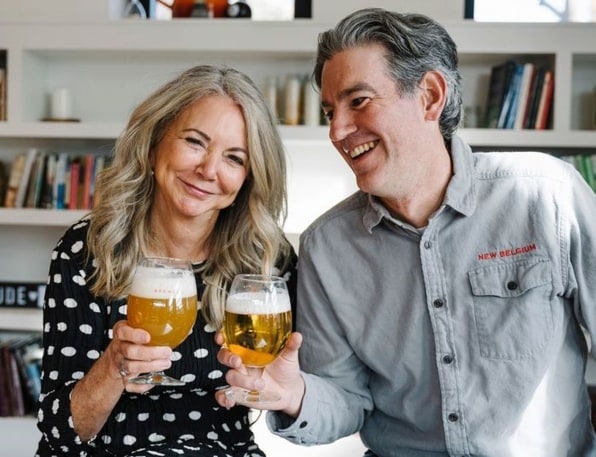
[Photo: courtesy New Belgium]
In practice, there was still a hierarchy within the ESOP; Jordan was CEO until 2017, after which Steve Fechheimer became CEO. But there wasn’t the same distance between that position and everyday employees as at most companies. Employees could email Fechheimer their doubts or concerns about a new product, and a 10-employee collective would actually run meetings. The pay gap was smaller, too, with the ratio of CEO-to-average-employee-pay less than 10-to-1 in 2019, compared to 351-to-1 among most U.S. companies.
Ending employee ownership, creating generational impact
Despite those benefits, there were still financial challenges with the ESOP. New Belgium needed cash for the ESOP repurchase obligations and to pay future-selling shareholders; the company also wanted to increase its marketing spending and continue growing the brand. Still, as an Australian subsidiary of a Japanese beverage conglomerate, Lion Little World Beverages sounded like the antithesis of a Colorado-born-and-bred craft brewery, but to Jordan, it was a path to making New Belgium the best craft brewery it could be.
The summer prior to the sale, the New Belgium board met with Lion’s board for dinner in Jordan’s backyard. “We spent a lot of time talking about this is who we are . . . we’re having you in our homes, we want to understand what you think of our core values because if we go forward, that’s going to be really important,” she says. The energy of that conversation, she says, left both Lion and New Belgium board members “feeling like it was kind of magical.” But that magic still meant the end of the ESOP. When asked if that end came too soon, Jordan is realistic about how that change looks when contrasted with her past enthusiasm for the model.
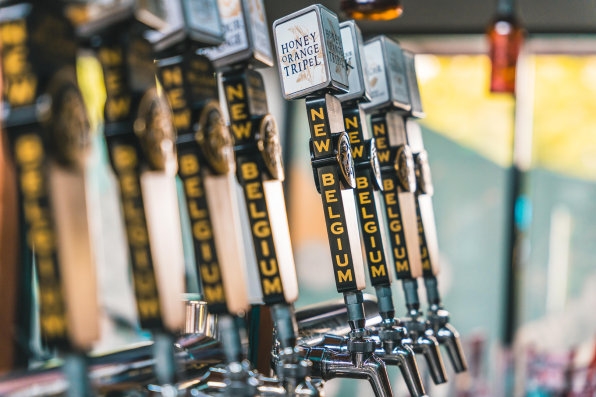
“My point of view has changed over time,” she says. A company’s financial situation may never be set in stone. As Fechheimer put it to her recently, “Balance sheets and capitalization strategies have a shelf life.” The way a company handles its finances—like, say, through an ESOP—may not last forever, depending on what that company has to deal with as it grows, and a board always has a fiscal responsibility to consider such changes. “I sort of knew that with a little more sophistication in 2019 [when New Belgium was acquired],” she says. “I’m not sure I was aware of how it was going to feel to have so many different interests to have to financially attend to.”
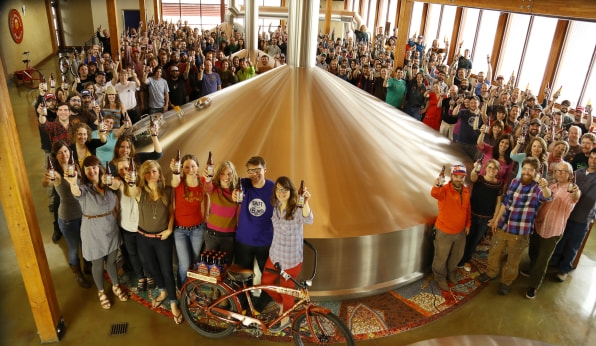
On one hand, she had hoped forces would allow New Belgium to go on as an ESOP forever. On the other, the workers approved the sale, and even that brief time in that structure netted New Belgium coworkers more than $200 million in payouts from the deal with Lion. At the time of the acquisition, more than 300 ESOP participants each received at least $100,000 from the sale, and another 450 received 5-figure payouts. “I think that’s remarkable,” says Jordan. “I’m really proud that a lot of people were able to tangibly feel that. But I did have to go through a bit of grieving . . . the legacy looked different than I had pictured it in my mind.”
Fechheimer adds that even though the ESOP may not have lasted for generations, the payouts are still likely to have generational impact, to be generating material wealth. “This isn’t an immaterial number,” says Fechheimer. “This is coworkers talking about being able to fund college education or being able to buy a home. . . . And even though we don’t have that ESOP in place now, all the other practices we’ve had, we’ve maintained.”
Preserving values
Just months after the November 2019 acquisition, COVID restrictions suddenly shuttered the brewery’s tasting rooms; and with new, strict safety protocols in place, only the people who make and ship the product came to work in person. For all those whose jobs were “paused,” the company found work in other areas, and to date, New Belgium has not laid off a single employee because of the pandemic.
This goes back to those “human-powered business practices.” Especially amid supply-chain challenges and other COVID-related issues, “you realize how critical each and every coworker is to be able to do what we do with the business,” Fechheimer says. “If the only people who showed up tomorrow were my leadership team, we would not be making or shipping any beer.”
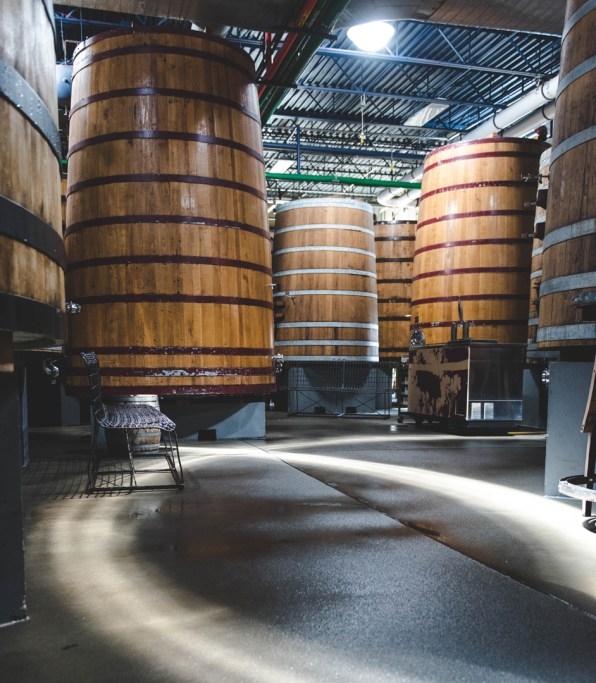
Would things have looked different if the company had stayed employee owned? “Once you’ve done the transaction, there’s 100 variables that change,” he says. “So how things would have played out . . . it’s hard to know the answer.” What is tangible, however, are the successes the company has seen recently: the ability to restructure jobs, avoid layoffs, and even hire more people. (Since December 2020, New Belgium has hired about 100 more workers, and is now a roughly 800-person company.) It’s also increased its minimum wage: In August, it went from $15 an hour to $18.50 (federal minimum wage is $7.25 an hour, the same as it was in 2009). All amid a pandemic.
Fechheimer thinks these successes came about, in part, because of the financial flexibility that came with being part of Lion. “It gave us time to figure out what it was we wanted to do,” he says. “I didn’t have to worry about a quarterly financial report due in two weeks. We were really able to take a bit of a longer view.”
Part of that longer view now includes joining up with Bell’s Brewery, which was sold to Lion in November 2021. Founder Larry Bell has been friends with New Belgium’s leadership for years, Jordan says, and they share similar cultural values. “For the joining of any two companies to be successful, you’ve got to have a cultural alignment,” Fechheimer adds. He points to how both New Belgium and Bell’s are “OG craft beers” (Bell’s was founded in 1985), how they both support environmental issues (Bell’s has received awards for its sustainability efforts), and how they treat their team members. New Belgium uses MIT data around a living wage, and early on Fechheimer says he learned that Bell’s uses the same data set.
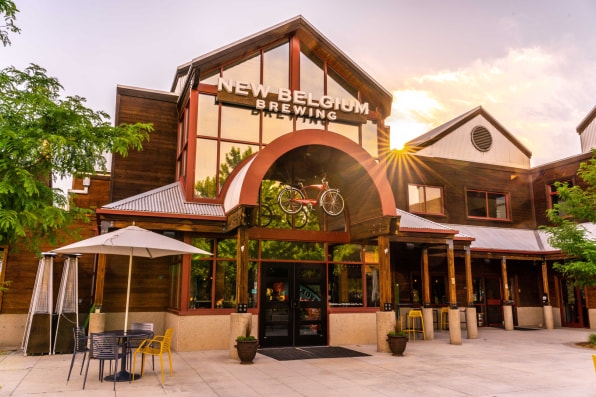
Just as no CEO could have known how 2020 (and 2021) would turn out when they sent workers home during the lockdown, it’s impossible to know what’s on the horizon for the next 30 years for New Belgium. But whatever it is, Fechheimer and Jordan say the company will be guided by those same core values Jordan sketched out in 1991.
Fechheimer says that the “independent nature of New Belgium” has stayed true over the past two years, even under Lion’s ownership. New hires go through the same core-values training as before, and the company recently unveiled a new internal system of governance with a steering committee, chaired by Fechheimer, that will focus on the company’s human-powered business practices and consider new commitments that are in line with that ethos (such as, new employee task forces, on everything from carbon neutrality to DEI). The point is to keep the original values of the company and help workers play an active role, even as it grows, and leadership inevitably changes over time.
At a time when more companies are thinking about purpose, how to serve stakeholders (their employees, the planet), not just shareholders, and how to balance a long-term view with short-term demands, New Belgium is already ahead of the game on that score. Over the next few decades, Jordan hopes they can be a company that moves these conversations even further. “The role of businesses to make a better planet is a really, really important thing, and that’s not just balance sheets and [profit and loss statements],” she says. “It’s improving both the human condition and the planetary condition.”
(62)

